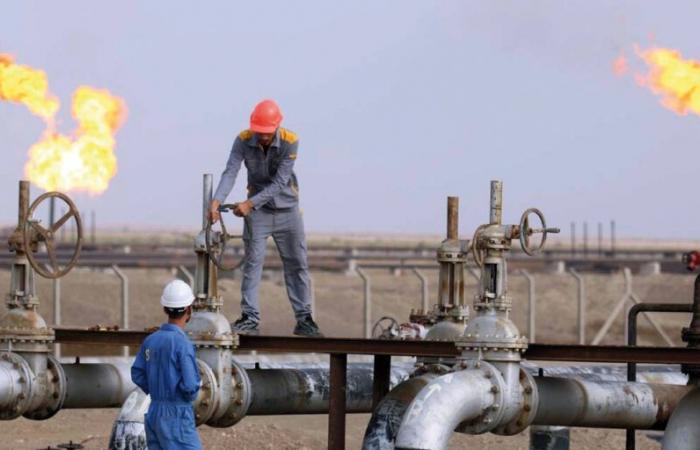The COP29 climate change conference ended on Sunday without explicit mention of the “transition” towards the exit from fossil fuels, a setback considered “worrying” by a number of experts who see it as a “step backwards” in the chances to keep the planet under 1.5 degrees of warming.
In addition to an agreement on climate finance – finally obtained in the last hours – negotiators from around the world meeting in Baku aimed to reflect on the implementation of the historic COP28 agreement in Dubai in 2023 on fossil fuels. , the main culprits of climate change.
But the text addressing this issue was ultimately not adopted, with countries deploring that it had been emptied of its substance.
This is “very worrying,” François Gemenne, Belgian researcher in climate policy and co-author of the 6th IPCC report, told AFP.
“We could have expected at least a resumption of the terms of COP28 and we did not even obtain that,” he lamented.
“The conclusions in Baku are not as ambitious as the moment requires,” reacted to AFP Laurence Tubiana, the architect of the historic Paris climate agreement of 2015.
“Once again, fossil fuels were defended by an insufficiently prepared COP presidency,” she underlined.
Read also | Morocco in the world top 10 in the Climate Performance Index
As a premonitory sign of this failure, COP29 opened with a speech by Azerbaijani President Ilham Aliev praising fossil fuels as a “gift from God”.
For Natalie Jones, an expert from the International Institute for Sustainable Development (IISD), Baku’s decision to set aside the fossil issue places the Paris agreements “on life support”.
This constitutes a “step backwards”, she told AFP, judging that a year of potential progress risks being lost, while next year could see “less ambitious leadership” on the climate, in particular because of the return to power of Donald Trump in the United States.
The concern is all the greater since already during the last G20, organized during the COP in Brazil, the commitment to move away from fossil fuels, although taken up in October in a ministerial text, disappeared from the final declaration.
The Europeans would have “liked to see more ambition” in Baku on reducing greenhouse gas emissions in all countries, underlined Wopke Hoekstra, commissioner in charge of climate negotiations.
As the talks ended in the early hours of Sunday morning, several countries also expressed objections.
“We made historic commitments a year ago, including moving away from fossil fuels. We came here to translate that commitment into meaningful action and, quite simply, we fell short,” said the Canadian delegate.
Read also | COP29 in Baku, what you need to know…
Fiji’s representative said this represented “an affront to this process”.
But while the Arab group had made it clear that it would reject any UN climate agreement that targeted fossil fuels, “it became clear to the Azerbaijani presidency that this issue would never reach consensus”, a condition sine qua no to come out of a COP with an agreement. “So she preferred to postpone it,” explains Ms. Jones.
If some, like France’s climate ambassador, Kevin Magron, consider this postponement “a failure”, a European negotiator sees it more as the fact that the priority was to reach an agreement on financing and to avoid the whole process completely collapses.
“The result of this COP is that we haven’t really made any further progress in reducing greenhouse gases, but we have saved the process of the Paris Agreement” of 2015 – which plans to continue the efforts to limit the increase in global temperature to 1.5 degrees compared to pre-industrial levels – this negotiator told AFP.
“We can still hope for better results next year,” he assured.
But will we have to wait until COP30, a whole year longer?
Not necessarily. The text not adopted in Baku is expected to be discussed again at next year’s meeting of negotiators in Germany in June. And the OECD is due to meet again to discuss a deal to ban export financing of direct international fossil fuel projects.
For Ms. Tubiana, “the discussion is not closed” on fossils. She is just “rejected”.
Challenge (with AFP)






